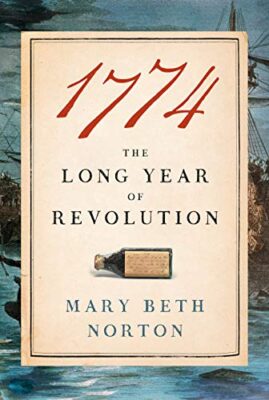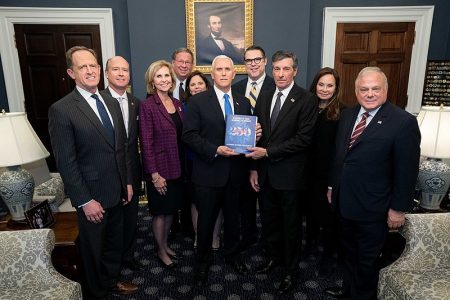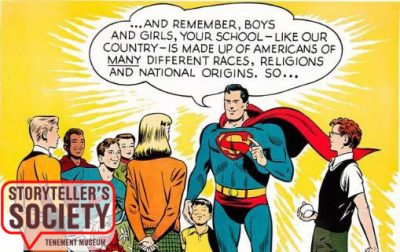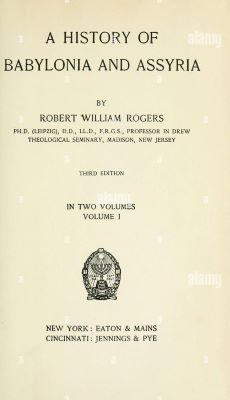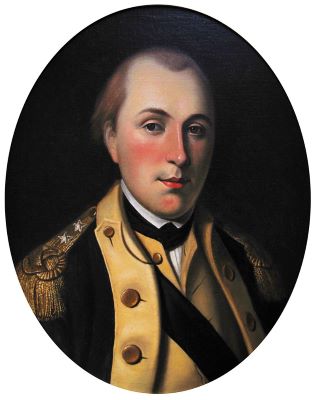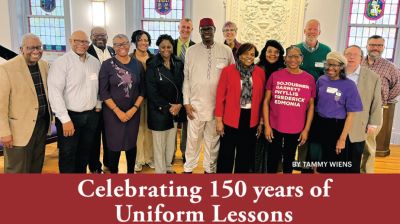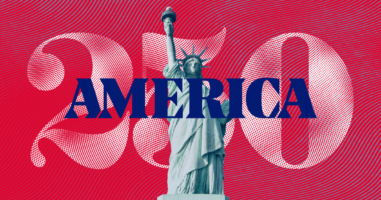
What is going on in the world of the American Revolution 250th? What follows is by no means a comprehensive report. It is a review of items that happen to cross my email by being a member of various lists. I present them in terms of scope starting at the national level
NATIONAL
Hi Peter,
As one of the original supporters of America250, I wanted you to be one of the first people to know – starting on the 4th of July this year, we’re officially kicking off the countdown to the 250th commemoration with America’s Invitation. This campaign will touch Americans from all across the country and expand our community planning the commemoration of America’s 250th anniversary in 2026 – and I’m hoping that you can be a part of this historic moment.
America’s Invitation is a chance for Americans to share their pride in their communities, culture, and experiences to capture and pass down to future generations. We’ll share these reflections as part of our mission to tell the full American story and to create the most inclusive commemoration in our history.
We are in the process of collecting submissions ahead of the launch of America’s Invitation on July 4, 2023, and I want to personally invite you to share your story. Whether it’s a photo of a meaningful local landmark, reflections on how you want to mark this historic milestone, or even a family recipe passed down through generations, we want you to share anything that is unique to you. This will give Americans the chance to learn about each other and preserve a portrait of America at 250.
Your story is the American story. Share a photo, video, poem, or other reflection with us today!
In anticipation of launching America’s Invitation, stay tuned for our next email in the coming days, where we’ll have more information on the road to the 250th commemoration in 2026 and other ways that you can get involved.
Thank you again for being a part of America250. With your help, we’ll make sure this is a commemoration that will make every American proud.
Warm regards,
The Honorable Rosie Rios
Chair, United States Semiquincentennial Commission
A few weeks later there was a followup email along the same lines. These emails show the national organization is alive and starting to reach out the American public. This is a welcome step forwards. Of course it is still bound by 2026.
National: Omohundro Institute of Early American History & Culture
Hosted by Maria DiBenigno, Hilary Miller, and Amy Speckart
Revolutionary Narratives: Reconsidering Commemorations at the U.S. 250th
Wednesdays at 4 pm ET (7/26, 8/2, 8/9, 8/16, 8/23)
What will 2026 look like at historic sites, museums, in libraries and archives, at schools and universities, in community organizations and local cultural institutions, at art museums and on historic battlefields? We already know that U.S. Semiquincentennial commemorations will be diffuse, decentralized, and debated. At national conferences and with regional planning committees, the facilitators, members of the working group Revolutionary Narratives, are exploring the possibilities of 2026 while acknowledging the long and problematic history of commemorations in the United States.
In our Coffeehouse, we will explore seven questions that have come up in conversation over the last two years.
1. How do we learn from past national commemorations?
2. How does popular culture influence and is influenced by public commemorations?
3. How do we encourage social responsibility during the 250th, especially when confronting gun culture, gender and race relations, climate crises, disinformation campaigns, etc.?
4. How do we produce historical knowledge, and what are we overlooking or undervaluing?
5. How can we think inclusively about the American Revolution and the 250th?
6. How can we think expansively about the American Revolution and the 250th?
7. How do we use this moment to bring the public together and respond to community interest, and who is the U.S. Semiquincentennial for?
We welcome anyone interested in the U.S. 250th to join the conversation—graduate students, public history practitioners, independent scholars, etc. Ultimately, our Coffeehouse will develop a short reflection piece, like a blog post, to reconsider the real-world implications of doing the 250th.
REGISTER HERE for “Revolutionary Narratives: Reconsidering Commemorations at the 250th”
Here we have a national history organization stepping in to provide informal coffee house discussions on the 250th. Although I have not been able to attend any of these online sessions so far, I will try in the future. I don’t know if they are recorded or not. In any event, good questions are being asked and discussed by people like you so it is worth a try.
NATIONAL: NCHE (National Council for History Education)
Educate and Commemorate: America’s 250th Anniversary in America’s Classrooms
September 19, 2023 ~ 7:30pm ET
Madeleine Rosenberg, American Association for State and Local History
LeRae Umfleet, North Carolina Department of Natural and Cultural Resources
Stephanie Hartman, Colorado Department of Education, America 250 – Colorado 150 Commission
Katie Roach, American 250 – Colorado 150 Commission
In 2026, the Declaration of Independence turns 250 years old. Americans continue to grapple with the impact of that document and how we have, and haven’t, lived up to its ideals. Students need to be included in these conversations, whether they live in one of the original 13 colonies or anywhere else in the United States. Join the American Association for State and Local History and two state organizations – from North Carolina and Colorado – to learn about commemoration efforts across the nation and how education initiatives are gearing up for America’s 250th.
https://ncheteach.org/conversation-post/Educate-and-Commemorate
Here is another national organization, this time a little more teacher oriented than museum, with a national program.
REGIONAL: CANADA, NEW ENGLAND, NEW YORK
Fort Ticonderoga has announced the creation of the 250th Northern Department, as part of its plans for the national 250th commemoration of the American War for Independence. This initiative will promote and market regional historic sites during the commemorative period from 2024-2027 and beyond through print and digital content and social media platforms.
The announcement came at a recent regional 250th commemoration meeting, held in Fort Ticonderoga’s Mars Education Center. Representatives from over 50 partnering organizations, museums and historic sites from across New York, Vermont, Rhode Island, Massachusetts, Connecticut, and Canada were in attendance to discuss 250th commemorative plans.
“The Northern Department shouldered the assault of British forces from the Canada in 1776 and 1777, culminating in the surrender of John Burgoyne’s army in October of 1777, forever altering the course of American history,” said Devin R. Lander, New York State Historian. “Today, as we build plans to commemorate the 250th anniversary of the War for the American Independence, we are thrilled to see Fort Ticonderoga initiate the recreation of the Northern Department. This project, connecting key partners in New York, Vermont and Canada, will promote Northern Department historic sites and draw hundreds of thousands of visitors to the region during the commemorative period.”
“It might be said that Washington’s tour of the forts and battlefields of the Northern Department in 1783 made this region collectively the site of the first Revolutionary War tourism,” said Beth L. Hill, Fort Ticonderoga President and CEO. “The Northern Department was critical to American victory in the Revolution and was recognized early on as the site of remarkable human achievements combined with some of America’s most dramatic scenery. Today we are energized to build off this legacy, encourage travel and catapult our region into the forefront of 250th commemoration in New York, the United States, North America, and beyond!”
Fort Ticonderoga will commemorate the 250th anniversary of the American Revolution as the conflict that shaped our nation. To serve our mission of preservation and education, Fort Ticonderoga will explore the individuals, alliances, triumphs, and challenges of the long war to achieve American independence and their lasting impact on the United States and the world. To learn more about 250th programs, events and other commemorative plans, visit https://www.fortticonderoga.org/learn-and-explore/ticonderoga-250th-real-time-revolution/
This level of international and multistate cooperation is a welcome development. Not all events in the American Revolution were restricted by our boundary lines to day. I look forward to trips for teachers and the general public to these multiple locations over the course of the 2024-2027 period. Back when I was doing teacherhostels/historyhostels, Fort Ticonderoga was one of the regular stops and I got to watch the Mars Education Center being build. I predict some very specific events and activities as a result of this collaboration and hope to be able to participate in them.
This model also can be used for other geographic areas even if confined to one state. I hope there will be presentations at history and museum conferences about the ongoing developments of this initiative.
STATE: CONNECTICUT
Preparing for the 250th in Connecticut
When: Wednesday, August 09, 2023 11:00 AM, EDT
Join us to learn more about Connecticut’s Semiquincentennial Commission, resources that they have released, and resources that are in development. Share your current plans and receive resources to help with planning for Connecticut’s commemoration of the 250th anniversary of the signing of the Declaration of Independence. This program is run in collaboration with CT Humanities.
Connecticut has an up and running state commission which includes the Connecticut League of Historic Organizations (CLHO). I am a member and attended this online session without about 135 other people. Some of what happened in Connecticut does overlap with New York State such as Sybil Ludington who a couple of the participants mentioned. There was even mention of the Lafayette Bicentennial in 1824 and 1825. This was of interest me as I am working with the American Friends of Lafayette to celebrate that event in New York.
REGIONAL: HUDSON VALLEY
Revolutionary Hudson Valley is a newly formed not-for-profit organization, supported by the Greater Hudson Heritage Network (GHHN), to assist with planning and coordinating the 250th anniversary in the Hudson Valley region. Spearheaded by Dutchess County historian Dr. William Tatum III, representatives from the region will actively assist, support, and publicize local 250th riverside events in Dutchess, Rockland, Westchester, Putnam, Orange, Sullivan, Ulster, Green and Columbia Counties, reaching out to key stakeholders including historians, historical societies, tourism professionals and elected officials and potential funders.
The story of the American Revolution in the Hudson Valley cannot be told by county. Think of Benedict Arnold and John André for example. Here we have an example of a regional history organization within a state taking the lead in creating a non-profit to serve the same areas it does in its museum work. I am sure we will hear more about it at upcoming annual conference, now live again, to be held at Boscobel this fall.
REGIONAL: LONG ISLAND
As the country looks ahead to the 250th anniversary of the Revolutionary War, leaders on Long Island have announced plans for a commemoration of the region’s local ties to the American War for Independence.
A bi-county planning commission will design a series of events to commemorate the signing of the Declaration of Independence, and the role that Long Island played during the Revolutionary War period.
Suffolk County Executive Steve Bellone and Nassau County Executive Bruce Blakeman announced the formation of the commission this week at Sagtikos Manor — a former headquarters for the British Army. “This is something we will be commemorating as a nation but it’s important that we commemorate it here on Long Island because of the pivotal role that Long Island played during this founding of our nation and during this revolutionary period,” Bellone said.
Local historians, educators and representatives from the five Native American nations on Long Island will participate in the planning to focus on local battles, the political division of loyalists versus revolutionaries and the impact on local residents.
Sandi Brewster-Walker, a historian and a member of the Montaukett Indian Nation, said she was happy to be involved in the planning and hoped the commission would take a realistic view of the region’s Revolutionary War history. “This is a time period that we, the Montaukett, we the Native Americans on Long Island, we lost our land,” she said. “And usually people don’t talk about that. But we also had numerous people from Long Island that were Native American that fought on both sides of the Revolutionary War.”
The combination of the two counties is a natural one. There will, of course, be connections with Connecticut. Nathan Hale and the Culper spy ring come to mind. The inclusion of the Montaukett Indian Nation in the commission and the planning indicates that the story of the American Revolution will be more inclusive than it has been in the past.
COUNTY: MONTGOMERY
As the nation prepares to celebrate the 250th anniversary of the American Revolution, Montgomery County, NY is making its own preparations by establishing a commission to create educational programming, events and messaging to promote the county’s significant connections to the Revolutionary War.
The sound of musket fire and cannon blasts once echoed across Tryon County and the Mohawk Valley. During the late 1770s and early 1780s, the founding of America and the struggle for freedom was playing out in part across Montgomery County, New York.
Visit Montgomery County, the county’s tourism initiative, has already prioritized local historic assets as part of its broader messaging, because of the interest generated by residents and visitors from outside of the region.
Publicly accessible sites in Montgomery County connected to the Revolutionary War include the Stone Arabia Battlefield and the Stone Arabia churches (including the cemetery where Col. John Brown is buried); The Fort Plain Museum; Fort Klock Historic Restoration; Old Fort Johnson National Historic Landmark; Van Alstyne Homestead; Fort Lewis and the Currytown Massacre site; Isaac Paris House; and Palatine Church.
Members of the County Legislature passed a resolution officially establishing the Commission during their meeting on June 27th.
Members of the Revolutionary War 250th Commemoration Commission are expected to be tasked with developing public programming, events and marketing materials that commemorate and honor the Revolutionary War, including the Battle of Stone Arabia and other activities that occurred in the county at that time. Commission members will create a logo and messaging that showcases the county’s connections to the war, with an eye toward promoting long-term heritage tourism.
The commission is expected to consist of 13 members, representing local historic sites, county government, and other relevant stakeholders.
This county initiative is welcome news to me. I have attended multiple conferences on the American Revolution there hosted by the Fort Plain Museum. Indeed at the last conference, speakers from Saratoga and Westchester counties presented on what they are doing. The former has a government commission led by the county historian while the latter has a non-profit 501(c)3 and has been very active this past year giving lectures throughout the county and holding family events.
I hope Montgomery County will take the lead in reaching to nearby counties to create a Mohawk Valley American Revolution Commission which will include some of the Haudenosaunee nations (not all of them are located in the Mohawk Valley).
This overview shows that people at the ground level are starting to do things. They are organizing at the county and multiple county regional level to tell the story of the American Revolution. Even in New York with its unstaffed and unfunded state commission people are working through their local county governments to prepare for the 250th and the years beyond. I suspect at some point the pace will pick up.
I apologize to people who are working on the 250th who were not included in this blog but as I said it is based on various email notices I receive and not from researching the communities.


